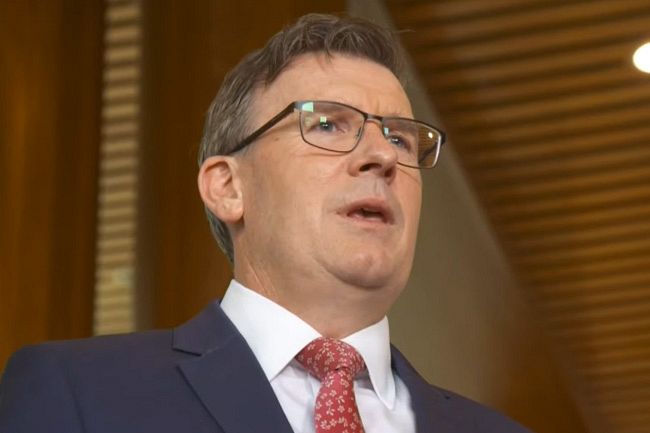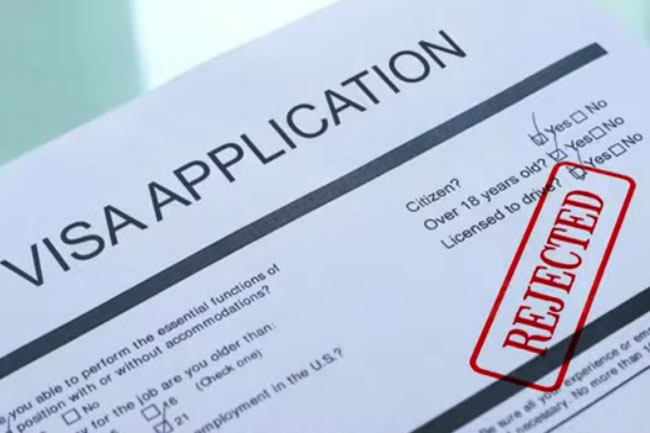A new international education strategy released by the Federal Government is another example of the Liberal Party's failure to plan efficiently, writes Dr Abul Rizvi.
LAST WEEK, Education Minister Alan Tudge released the Government’s Australian Strategy for International Education 2021‑2030.
This was much anticipated after the Morrison Government’s shameless treatment of Australia’s public universities — denying them JobKeeper while numerous overseas companies benefited massively even though they did not have the fall in revenue they had apparently anticipated.
Nor did they experience the massive decline in revenues that Australia’s public universities experience.
And we should not forget Morrison telling overseas students to “go home” early in the pandemic knowing most of them could not and would be consigned to living off charity.
Not surprisingly, neither of these embarrassing actions rates a mention in Tudge’s strategy.
The first priority in the strategy is for greater diversity in source countries for overseas students.
But there is no mention of the fact there will be an inevitable decline in students from China due to the Government’s ongoing head-butting with China’s Government.
Apart from this decline, the strategy doesn’t have any actual actions to achieve Tudge’s number one priority.
Having lost tens of thousands of university staff members, including a very large portion of research staff who were funded through overseas student fees, an effective international education strategy is essential for Australia’s universities to recover their ability to contribute to Australia’s long-term development and the permanent migration program.
Sadly, Tudge’s strategy falls well short of what is needed.
It includes three embarrassingly unambitious, if not silly, measures of success.
Firstly, growth in the number of students enrolled in offshore and transnational education delivered by Australian providers.
The strategy does not stipulate any particular level of growth or even “strong” growth. Just a little bit of growth off a very low base would be acceptable to Tudge.
Secondly, growth in the proportion of international students employed or enrolled in further study after graduation.
This success measure makes no reference to the type of employment or the type of further study. Given most overseas students must get a job to survive after graduation, any sort of low skill and low pay job seems acceptable to Tudge.
Going onto further study after their temporary graduate visa has expired is already common for many overseas students just to maintain their legal visa status in Australia. Students doing another low-quality course is no measure of success at all.
Finally, growth in the proportion of international students who are satisfied or very satisfied with studying and living in Australia.
Given the Government’s appalling treatment of overseas students during the pandemic, such growth would also be off a comparatively low base.
Astonishingly, Tudge’s strategy includes no success measures for the next nine years on the forecast number of overseas students in Australia; market share; employment in the international education sector; export income; or speed of transitioning to skilled permanent residence.
It’s as if these measures are not relevant to success in Tudge’s bizarre world.
In the second half of the 1990s and the first half of the 2000s, I had responsibility for Australia’s overseas student visa and pathways to permanent migration.
In internal discussions on how to grow the international education industry, many of the Immigration Department’s senior overseas officers told to me that we could have any number of overseas students we wanted — it’s just a question of the level of risk we are prepared to take.
There are three crucial but inter-related risks associated with the overseas student visa that have been much the same for over 30 years.
Yet Tudge’s strategy has no discussion of these risks or how they will be managed.
Firstly, there is a risk of low quality and low integrity education providers, often but not always in the private vocational education and training (V.E.T.) sector, becoming visa factories rather than education providers.
That is, their product is a visa — not education.
Their business model is to poach overseas students who are already in Australia from more reputable providers and give struggling overseas students a relatively cheaper means of remaining in Australia while they undertake low skill jobs.
Tudge’s strategy, in fact, takes specific steps that will give low integrity providers a massive leg up.
There is no explanation for why these steps have been taken — they are most likely the result of lobbying by various parts of the industry that are favoured by Tudge.
Secondly, there is a significant risk that students with limited financial capacity, needing to work full-time to survive, become highly vulnerable to exploitation and abuse.
The Government argues that it has helped these students by providing them with unlimited work rights in certain low pay industries.
What this has really done is trashed the reputation of Australia’s international education industry by making the student visa essentially a work visa with incidental study rather than a study visa with incidental work.
No comparable country has done the same.
Finally, there is a risk too many students undertake courses that are not valued by Australian employers leading to large numbers of students being left in immigration limbo because they are unable to get skilled employment using the qualifications they acquired in Australia.
Even with the current high level of skilled job vacancies in Australia, we have around 100,000 temporary graduates in Australia struggling to find skilled employment and a pathway to permanent residence.
Tudge’s strategy will accelerate rapid growth in this number.
In addition, there are many more temporary graduate visa holders who were caught overseas when the pandemic started — many of them may also struggle to find skilled employment and a pathway to permanent residence.
It is extraordinary that Tudge’s strategy makes no mention of these risks or how they will be managed.
Yet how these are managed will be critical to the long-term success of Australia’s international education industry as well as the future of Australia’s migration program.
Tudge’s strategy is just another example of the Morrison Government tendency to issue so-called plans and strategies that are not worth the paper they are written on.
Dr Abul Rizvi is an Independent Australia columnist and a former Deputy Secretary of the Department of Immigration. You can follow Abul on Twitter @RizviAbul.
Related Articles
- Alan Tudge opens his own Christian college
- Tudge flags freedom of speech while whitewashing Australia's past
- Conservatives like Tudge think they need history but not historians
- Tudge sore over suggestion we question Anzac Day
- Government approved visas against migration laws
 This work is licensed under a Creative Commons Attribution-NonCommercial-NoDerivs 3.0 Australia License
This work is licensed under a Creative Commons Attribution-NonCommercial-NoDerivs 3.0 Australia License
Support independent journalism Subscribe to IA.
















